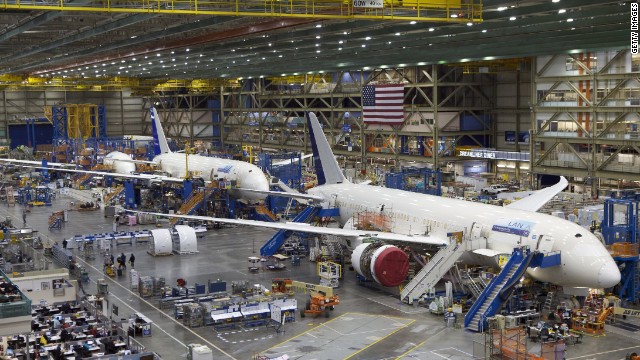Whether or not to maintain government subsidy on certain products or services in a bid to make them accessible or affordable has created considerable debate in most countries and has even resulted in major labour actions in those places.
Now, on a grand scale and in what would be regarded as a historic trade ruling, the World Trade Organization today finds the aircraft production giant, Boeing as illegally benefitting from billions of dollars from the most anti-competitive type of subsidy.
These so-called "prohibited" subsidies are considered the most severe form of anti-competitive practice as they require an undertaking from the recipient company to promise not to operate in other jurisdictions.
The idea is that the benefiting company can have the money only if it promises not to open plants elsewhere - in this case even in another US state.
This particular subsidy was offered by Washington State - home of Boeing's vast Everett and Renton plants - and covers the development of its wide bodied 777X aircraft.
Precedents of such ruling usually require immediate repayment - a sum that by some estimate could approach $9bn, a figure which Boeing, however, ardently disputes.
Boeing has previously called for an Australian company, found to be in receipt of similar prohibited subsidies, to be forced to immediately repay them, but it's unlikely it will take such a hard line on itself.
This signifies a herald of victory for Airbus in an endless war between the two giants. Back in September the European aerospace giant, which employs 15,000 people in the UK, was on the receiving end when it was found that billions of euros in low interest loans amounted to illegal subsidies. Boeing celebrated that moment as a grand victory which would deal a mortal blow to Airbus and result in more US jobs.
The truth is that neither of these companies can operate without some dependency on government subsidies.
The sky-rocket development costs of new aircraft, the risks and huge rewards associated with it are too significant for government to just be a spectator.
Boeing gets money from NASA and the US Department of Defence; Airbus from extremely low interest government loans. For years this was the case and an uneasy truce reigned over the world aerospace market throughout the 1990s and beyond. Then, in 2004, both companies via its lawyers launched an all-out war at each other’s for 12 years.
But while many may nurse hopes of possible end to this strife, there are still more developments worthy note.
Canada's government subsidies Bombardier, and then there is the biggest threat to the Airbus and Boeing duopoly. It is called Comac, the state-funded Chinese plane maker with the world commercial aviation market its number one target. Its recent wide bodied aircraft combine features of both the Boeing 777 and Airbus A350 and caught many eyes at a recent airshow in China.
Perhaps this potential common enemy will one day prompt Boeing and Airbus to bury the hatchet.
The world's longest running and costliest trade dispute does shed some interesting light on the workings of the World Trade Organization.
This is a body the UK may get to know a bit better in the coming months and years if the UK leaves the EU without a reasonably good trade substitute.
“The big lesson†as BBC’s business editor, Simon Jack rightly remarked, “is this: disputes take years, are rarely conclusively settled, and do not take the heat out of international trade disputes.â€





